The orchestral repertoire does not stand on an immovable bedrock of tradition: It is built on fertile soil that is continually being renewed by organic growth, by the flourishing of new sounds, new ideas, and new voices. Throughout its 123-year history, The Philadelphia Orchestra has been a driving force in this renewal, and the 2023–24 season announced in January reminds us of its heritage of mixing diverse new voices with the richest of established classics.
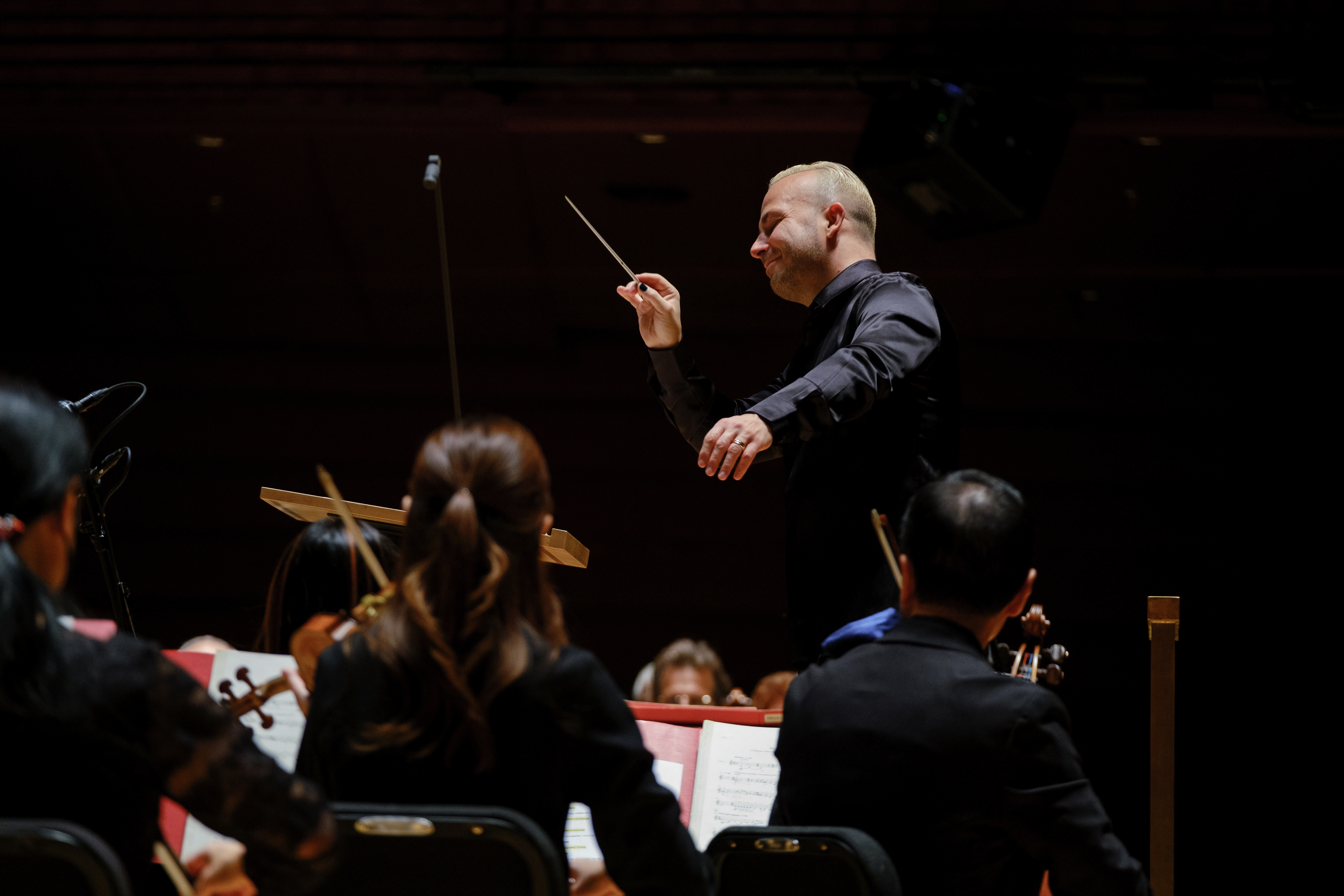
Music and Artistic Director Yannick Nézet-Séguin with The Philadelphia Orchestra. Photo: Jeff Fusco
The season includes a dozen new works by living composers, half of whom are women, and seven of which are Philadelphia Orchestra commissions or co-commissions. Perhaps more important, half of the living composers represented on the season are BIPOC artists (Black, Indigenous, and People of Color).
The season also includes multiple appearances by cellist Yo-Yo Ma and extended visits by violinist-conductor Gil Shaham (January 5–7 and 26–28) and composer-conductor Esa-Pekka Salonen (May 9–11 and 16–18); one-night-only concerts with John Williams and Yo-Yo Ma performing his Cello Concerto and iconic film music (February 20) and GRAMMY– and Tony Award–winning vocalist Audra McDonald (October 3); performances of works by venerated composers from the past such as William Grant Still (Symphony No. 4, “Autochthonous,” October 6–8), Florence Price (Symphony No. 4, December 7–10), and Feliks Nowowiejski (Overture to Baltic Legend, January 11–13); and Philadelphia Orchestra debuts by pianist Javier Perianes, conductor Anna Sułkowska-Migoń, pipa virtuoso Wu Man, and organist Christian Schmitt. The season also sees returns of beloved conductors and instrumentalists such as former Music Director Christoph Eschenbach, Fabio Luisi, Mirga Gražinytė-Tyla, Tugan Sokhiev, Emanuel Ax, Hélène Grimaud, Daniil Trifonov, Joshua Bell, Leif Ove Andsnes, and Mitsuko Uchida.
“The unmistakable sound, beauty, and grandeur of The Philadelphia Orchestra is always present on our stages, while our view of the art of music is always evolving,” said Music and Artistic Director Yannick Nézet-Séguin. “In the 2023–24 season, we will continue to create a greater, more inclusive perspective on classical music, across centuries and cultures. We will welcome friends, familiar and new, to perform music that is known and beloved as well as music, as we believe in our hearts, that should be heard and known, now and for the future.”
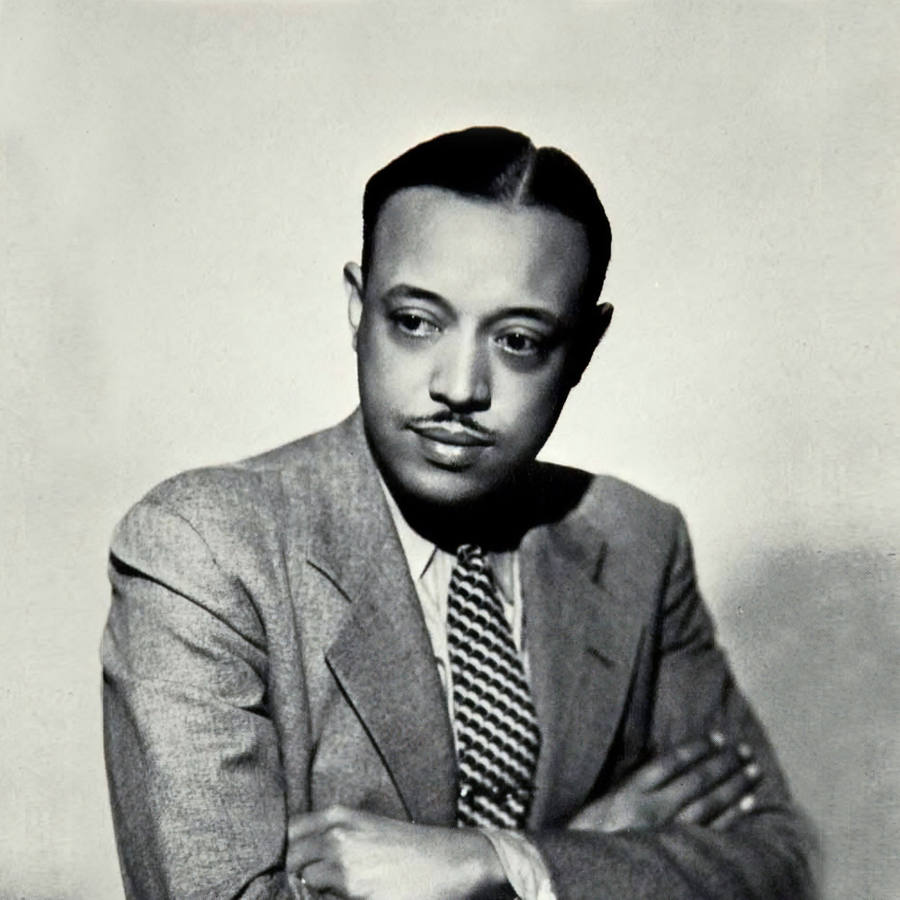
Yannick and the Orchestra perform William Grant Still’s Symphony No. 4 (“Autochthonous”) for the first time.
Nézet-Séguin will conclude his 12th season at the Orchestra’s helm with performances of Puccini’s most beloved opera (June 7–9). “We will climb to the most magnificent heights of the human voice and bring the season to a poetic culmination with a project close to my operatic soul,” Nézet-Séguin said, “a staged concert version of Puccini’s La bohème. This is a season full of joyful opportunity and musical adventure.”
The 2023–24 season also includes performances marking the centennial of Gershwin’s Rhapsody in Blue; Requiems by Mozart and Brahms (the Mozart led by Principal Guest Conductor Nathalie Stutzmann, who returns for two subscription weeks, including one devoted to Beethoven); and favorites by Schubert, Schumann, Mahler, Bartók, Ravel, Debussy, Rachmaninoff, Orff, Sibelius, Prokofiev, and Shostakovich. The Orchestra’s Imasogie Storyteller, Narrator, and Host, Charlotte Blake Alston, will again bring wit and insight to some of the concerts through her spoken introductions.
A sort of spiritual infrastructure runs through the season, with unconventional works such as British-born Anna Clyne’s This Moment (a reflection on Zen Master Thich Nhat Hanh’s messages of peace and reconciliation); Peruvian composer Jimmy López Bellido’s Ephemerae (a synesthesia-inspired piano concerto that strives to capture the sensation of fragrances in music); and Venezuelan composer Esteban Benzecry’s MUYUY, The circle of life (whose Quechua title alludes to the manner in which human existence disrupts earth’s balance).
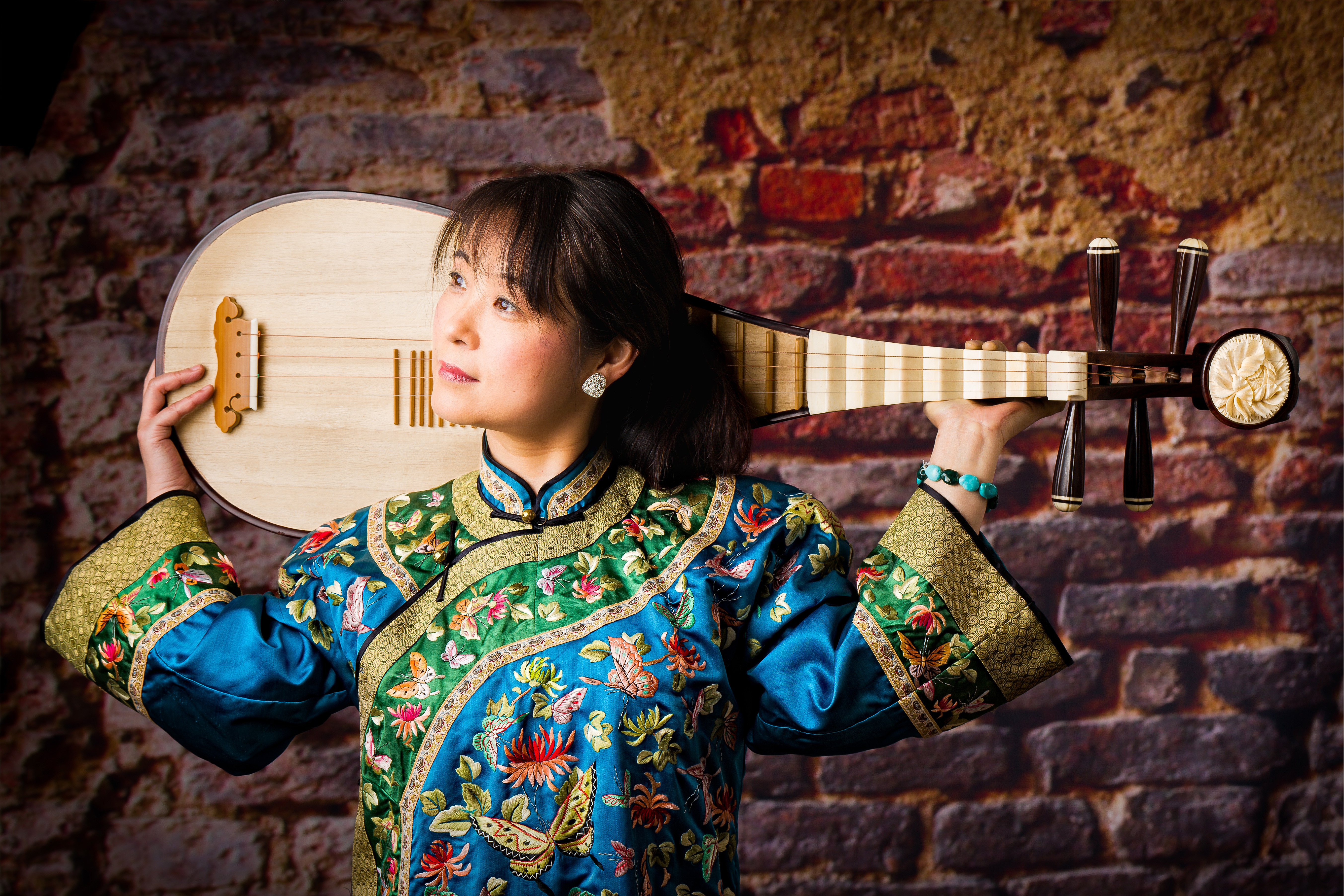
Pipa virtuoso Wu Man performs the premiere of a concerto by Du Yun. Photo: Stephan Kahn
Chinese-American composer Du Yun’s Pipa Concerto embraces Eastern and Western cultures, Cuban-Canadian composer Luis Ernesto Peña Laguna’s Oraison is an homage to victims of COVID-19, and Esa-Pekka Salonen’s playful Karawane explores Dadist poetry. Also among the commissions are Clarice Assad’s Bassoon Concerto (with Principal Bassoon Daniel Matsukawa), Valerie Coleman’s Concerto for Orchestra, an orchestral work by Julia Wolfe, and Mason Bates’s Violin Concerto (featuring Gil Shaham).
In addition, the Orchestra will inaugurate its Spotlight recital series, which presents spring programs by three of the world’s greatest soloists: Cellist Yo-Yo Ma and pianist Kathryn Stott perform on April 12, pianist Yuja Wang on April 30, and pianist Evgeny Kissin on May 15.
“This is a new golden age for The Philadelphia Orchestra,” said Matías Tarnopolsky, president and CEO of The Philadelphia Orchestra and Kimmel Center, Inc. “The relationship between the musicians and Yannick keeps growing into deeper and deeper levels of expression, of musicianship, of sheer virtuosity. What this orchestra is doing, in terms of both playing the great classics and broadening the repertoire, is an example within the musical world—and I think this season perfectly and inspiringly exemplifies this.” Tarnopolsky lauded Nézet-Séguin’s determination to expand not just the Orchestra’s activities but also its approach to music. “You see so many examples of his insatiable musical curiosity being shared with our audiences.”
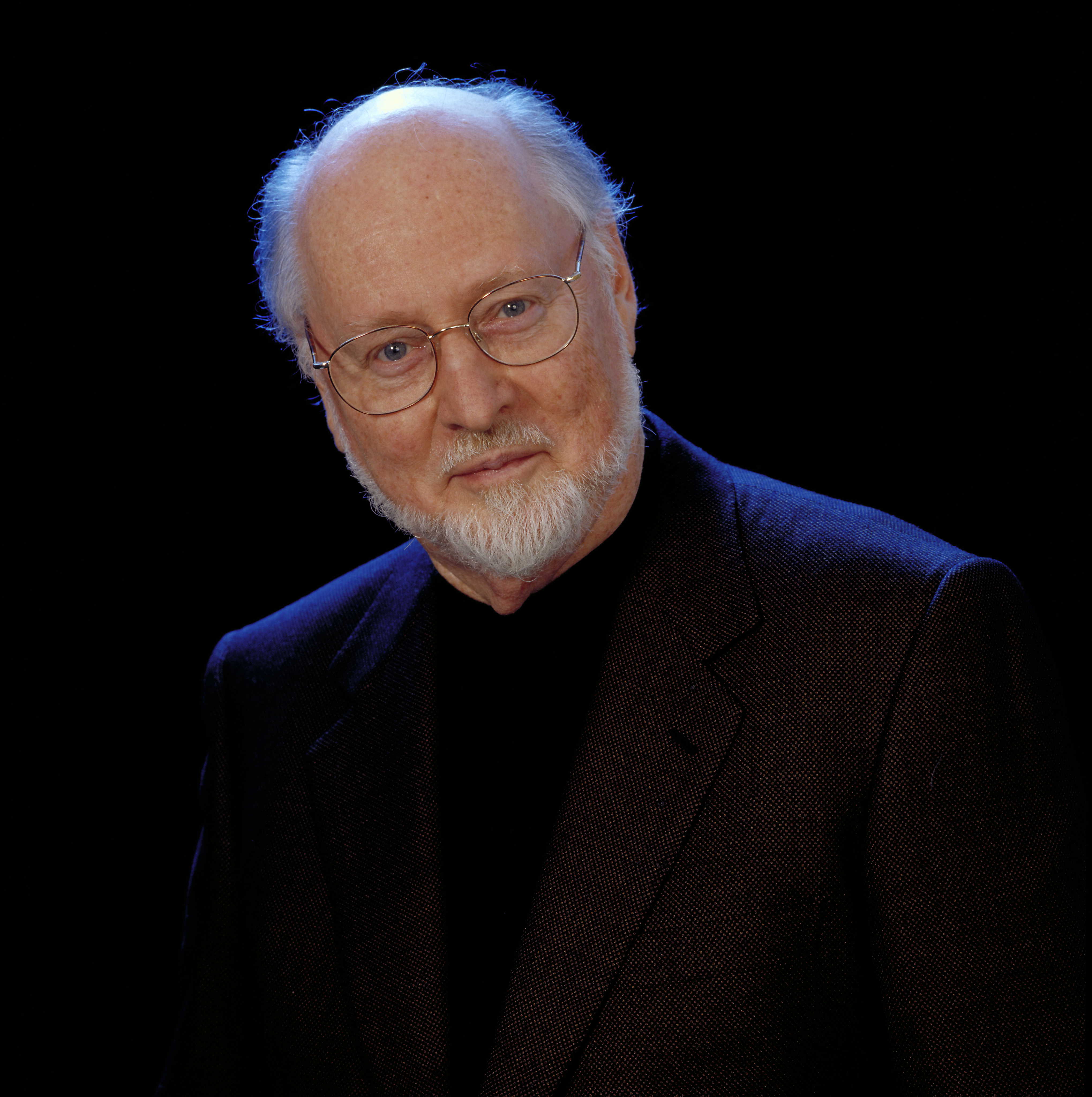
The legendary John Williams returns to conduct an evening of his music, including the Cello Concerto with Yo-Yo Ma.
While building on the legacy of tradition, Tarnopolsky said, in recent seasons “there is a much more explicit commitment to diverse voices onstage and off … and to new music as well as to the classics. … Whether it be music by Jimmy López Bellido, Clarice Assad, Valerie Coleman, Florence Price, or William Grant Still, or whether it be women on the podium, our commitment to I.D.E.A.S. [inclusion, diversity, equity, and access strategies] permeates the season, and it really shows us that the orchestral canon is a lot wider than we ever thought it could be.”
A recent expression of this commitment was the GRAMMY® Award–winning recording of Florence Price’s First and Third Symphonies, which also garnered the 2022 Diapason d’or and sparked intense global interest in this Arkansas-born composer. (Her Fourth Symphony forms part of the upcoming season.) “Here is a composer who wrote fantastic orchestral music but was not fully recognized in her day,” Tarnopolsky said, “and we’re able to bring her music to the great stages of the world, be it in Philadelphia or at Carnegie Hall or on our recent European tour.”
There are doubtless many more Florence Prices waiting to be discovered, and American orchestras are taking up the challenge. “We have a commitment to discovering overlooked works that were suppressed, for various reasons, historically,” said Chief Programming Officer Jeremy Rothman, “and to continue to present those, while also creating and commissioning new works that should present a balanced representation of Who’s Who among composers working today.”
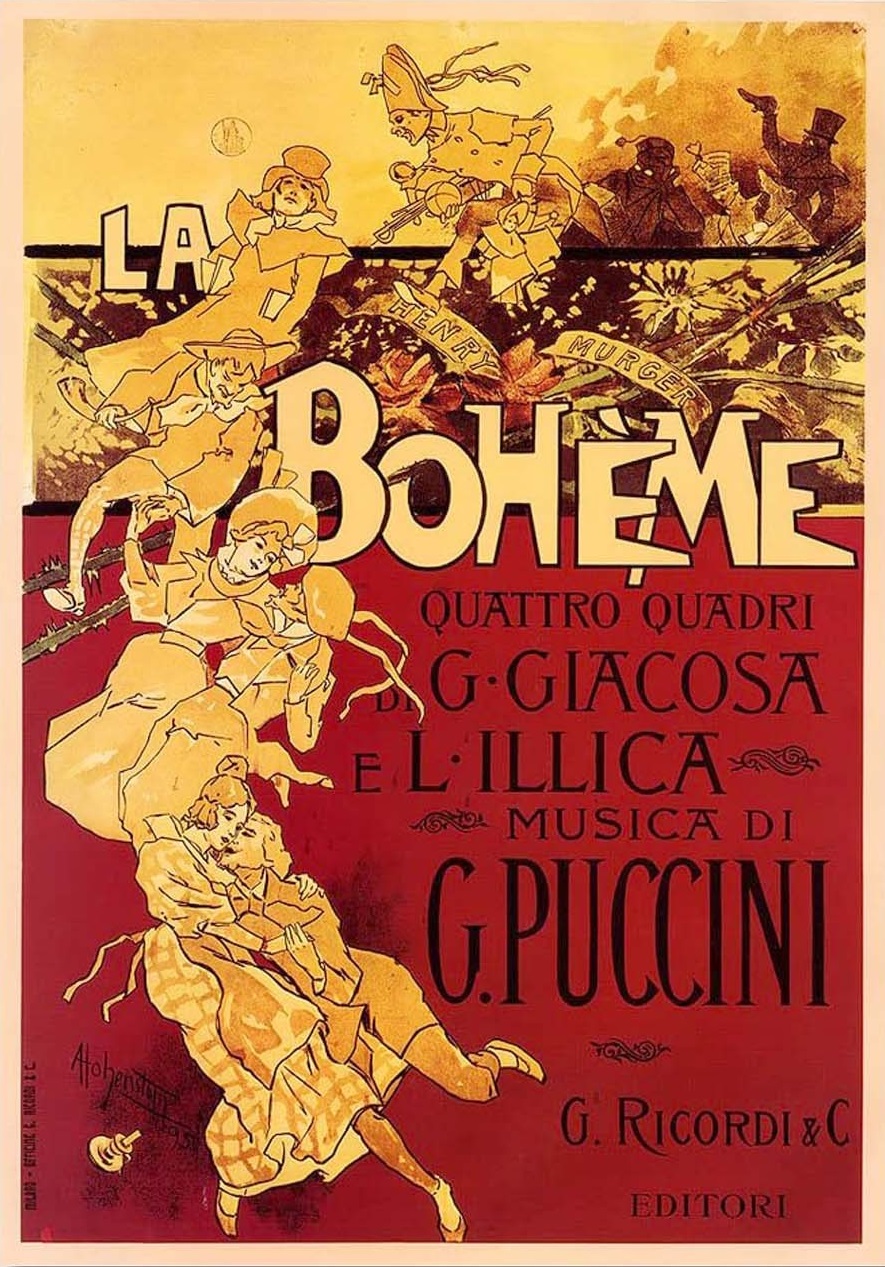
Yannick and the Orchestra close the season with theatrically enhanced performances of Puccini’s classic opera La bohème.
Americans were jolted to attention in May 2020 when George Floyd was murdered just as the COVID pandemic was getting underway. “We looked at ourselves and asked, ‘Is the classical music world doing enough?’’ said Tarnopolsky. “And the answer was, not nearly enough. So we redoubled our efforts to make sure that we were representative, in both the music and the musicians who perform on our stages.”
“Yannick and the musicians of the Orchestra feel a great responsibility to make sure that we are an organization that really does represent the world, and not just the traditional orchestral canon,” Tarnopolsky said. “This process of exploration is just beginning.”
Paul J. Horsley is performing arts editor for The Independent in Kansas City. Previously he was music and dance critic for the Kansas City Star and program annotator and musicologist for The Philadelphia Orchestra.